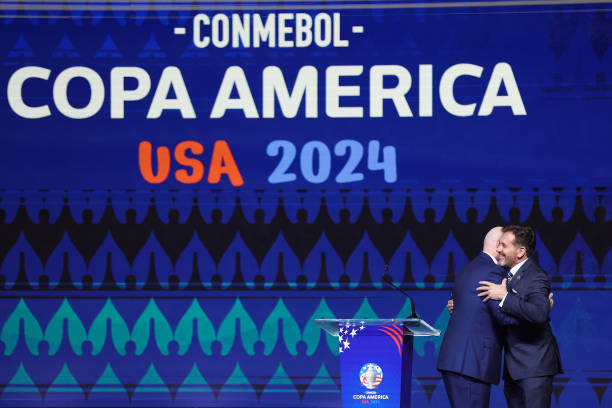Soccer, or football as it’s known in many parts of the world, transcends the boundaries of the pitch, weaving its influence into the fabric of societies globally. Beyond the exhilarating matches and passionate fanfare, the beautiful game plays a pivotal role in shaping economies and fostering social connections. In this article, we delve into the economic and social impact of soccer, removing the layers that extend far beyond the confines of the field.
1. Economic Kick-Off: The Business of Soccer
The economic footprint of soccer is colossal, with the sport evolving into a lucrative industry that spans broadcasting rights, merchandise sales, and player transfers, as well as stimulating growth in betting markets, with fans flocking online to PowerPlay and other trusted platforms to put money down on matches. The business side of soccer generates substantial revenue, contributing significantly to the GDP of nations where the sport holds sway.
Global Broadcast Deals
One of the primary revenue streams for soccer comes from broadcast deals. Major leagues and tournaments sign lucrative contracts with television networks and streaming platforms, creating a massive global audience. These deals not only benefit the leagues but also provide a platform for sponsors to reach a diverse and engaged demographic.
Merchandising Madness
From jerseys to scarves and everything in between, soccer merchandise fuels and shirt sponsorship deals are a thriving industry. Fans proudly don the colours of their favourite teams, turning stadiums into vibrant seas of club emblems. The sale of merchandise not only generates revenue for clubs but also creates a sense of belonging among fans and supporters.
Transfer Market Frenzy
Player transfers constitute another economic dimension of soccer. High-profile transfers involve substantial sums to get the soccer players with the highest market value, and the movement of players between clubs has a domino effect on team dynamics, fan loyalty, and the global soccer market. The transfer market, in essence, acts as a barometer for the financial health and competitiveness of clubs.
2. Social Goal: Uniting Communities
While the economic impact of soccer is undeniable, its social influence is equally profound. The sport has an unparalleled ability to unite communities, transcending cultural, linguistic, and social barriers.
Cultural Melting Pot
Soccer serves as a cultural melting pot where diverse communities come together. The shared passion for the game creates a sense of camaraderie among fans, fostering an environment where differences are set aside in the name of a common love for their team.
Grassroots Engagement
At the grassroots level, soccer acts as a catalyst for community engagement. Youth leagues, neighbourhood tournaments, and amateur clubs provide platforms for individuals of all ages to participate in the game. This grassroots engagement not only promotes physical well-being but also instills values like teamwork, discipline, and resilience.
Celebratory Rituals
Soccer matches are not just sporting events; they are cultural phenomena. The rituals associated with game days, from pre-match traditions to post-match celebrations, become ingrained in the social fabric. Whether it’s a victory parade or a communal gathering at a local pub, soccer rituals create a sense of belonging and shared identity.
3. Beyond Borders – Soccer Diplomacy
Soccer has a unique ability to act as a diplomatic bridge between nations. International tournaments and friendly matches provide a platform for countries to engage in healthy competition, fostering diplomatic ties and transcending political differences.
World Cup Diplomacy
The FIFA World Cup, the pinnacle of international soccer, exemplifies soccer’s diplomatic potential. The tournament brings together nations from around the globe, providing a stage for cultural exchange and international cooperation. Even in times of political tension, the World Cup has been a beacon of unity, where the focus shifts from geopolitical differences to the celebration of the sport.
Shared Moments of Joy and Heartbreak
Soccer tournaments create shared moments of joy and heartbreak that resonate across borders. The elation of a last-minute goal or the agony of a penalty shootout loss is a universal experience. These shared emotions create connections among fans, fostering a global community that transcends geographical and political divides.
4. Grassroots Empowerment – Soccer for Social Change
Beyond entertainment, soccer has the power to drive social change and address societal issues. Initiatives and programs leverage the sport’s popularity to promote inclusivity, education, and health.
Tackling Social Issues
Soccer-based programs tackle social issues such as gender inequality, racism, and poverty. Organizations and clubs invest in community projects that use soccer as a tool for empowerment, providing opportunities for marginalized groups to participate and thrive.
Education Through Soccer
Soccer is harnessed as an educational tool in many communities. School programs and after-school initiatives use the sport to promote learning, teaching essential life skills alongside soccer fundamentals. This approach not only enhances physical well-being but also contributes to holistic personal development.
Health and Well-being
Promoting health and well-being is a core aspect of soccer’s social impact. Community health programs use the sport to encourage physical activity, fostering a culture of fitness and wellness. Beyond the professional level, soccer becomes a vehicle for promoting an active lifestyle.
5. Future Goals – Sustainable and Inclusive Soccer
Looking ahead, the future of soccer lies in creating a sustainable and inclusive environment. From eco-friendly stadium initiatives to fostering diversity within the sport, the focus is on ensuring that soccer continues to be a positive force on both economic and social fronts.
Sustainable Stadiums
Soccer clubs and governing bodies are increasingly adopting sustainability measures. From energy-efficient stadiums to eco-friendly practices, the sport is taking steps to reduce its environmental impact. These initiatives not only contribute to a greener future but also set an example for fans and communities.
Inclusivity in Soccer
Efforts to make soccer more inclusive are gaining traction. Initiatives to combat racism, promote LGBTQ+ inclusivity, and ensure gender equality within the sport are vital steps toward creating a soccer culture that reflects the diversity of its fanbase. Inclusive policies and practices are essential for soccer to remain a sport that resonates with people from all walks of life.
The economic and social influence of soccer extends far beyond the boundaries of the field. As a global phenomenon, soccer’s impact is felt in boardrooms, communities, and diplomatic circles. Whether it’s the roar of the crowd in a packed stadium or the quiet empowerment of a community program, soccer continues to score goals that resonate far beyond the final whistle.







